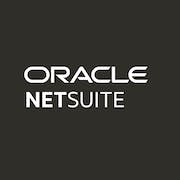Are you tired of spending countless hours manually managing your accounts receivable processes? Are late payments and outstanding invoices causing unnecessary stress and impacting your cash flow? It's time to take control of your financial management with the right accounts receivable software. Whether you're a small business owner or a finance professional, finding the perfect solution that streamlines your invoicing, payment tracking, and collections is crucial for your success. In this comprehensive buyer's guide, we will explore the top accounts receivable software options available in the market today. By the end, you'll have all the information you need to make an informed decision and empower your business with efficient and effective financial management tools. Say goodbye to manual processes and hello to increased productivity, improved cash flow, and better customer relationships. Let's dive in and find the ideal accounts receivable software for your unique needs.
What is Accounts Receivable Software
Accounts Receivable Software is a powerful tool designed to streamline and optimize financial processes within businesses. By automating tasks and providing real-time insights, this software empowers organizations to effectively manage their accounts receivable operations, enhance cash flow management, and improve overall financial performance. In this article, we will explore the features, use cases, and benefits of Accounts Receivable Software, providing you with a comprehensive understanding of its potential. Accounts Receivable Software is a digital solution that simplifies and automates the management of outstanding customer payments. It centralizes all accounts receivable activities into a single platform, eliminating the need for manual processes and paperwork. This software integrates with existing accounting systems, enabling businesses to seamlessly track, collect, and reconcile payments, while improving accuracy and efficiency. Use Cases: 1. Payment Tracking: Accounts Receivable Software helps track and monitor all customer payments, eliminating the risk of missed or late payments. It provides real-time visibility into outstanding invoices, highlights payment due dates, and automates payment reminders, ensuring a steady cash flow. 2. Invoicing and Billing: With Accounts Receivable Software, businesses can easily create and send professional-looking invoices to customers. The software allows customization of invoice templates, automated generation of recurring invoices, and simplified reconciliation of payments, reducing administrative burdens. 3. Customer Relationship Management: Accounts Receivable Software enables efficient management of customer information. It keeps track of customer interactions, payment history, credit limits, and outstanding balances. By providing a holistic view of customer accounts, businesses can effectively engage with clients and address any payment discrepancies or issues. 4. Reporting and Analytics: This software provides comprehensive reporting and analytics capabilities, allowing businesses to gain insights into their financial performance. By generating detailed reports on cash flow, outstanding balances, and aging receivables, organizations can make informed decisions and identify areas for improvement. Types of Companies that Use Accounts Receivable Software: - Small and Medium-sized Enterprises (SMEs): By automating and streamlining accounts receivable processes, SMEs can save time and resources, improve cash flow, and enhance their financial management capabilities. - Service-based Businesses: Companies in industries such as consulting, marketing agencies, and professional services greatly benefit from Accounts Receivable Software. It simplifies billing processes, enables accurate tracking of billable hours, and ensures timely collection of payments. - Retail and E-commerce: Accounts Receivable Software is valuable for retail businesses and e-commerce platforms that deal with a large volume of transactions and customers. It facilitates efficient invoice management, tracks online payments, and supports integrated payment gateways. - Manufacturing and Distribution: For companies dealing with complex supply chains and multiple clients, Accounts Receivable Software provides a centralized system to manage invoicing, track payments, and optimize cash flow, thereby improving financial stability. Accounts Receivable Software empowers businesses of all sizes to efficiently manage their accounts receivable operations. By automating processes, optimizing cash flow, and enhancing financial visibility, this software reduces administrative burdens and facilitates better decision-making. Whether you are a service-based business, an e-commerce platform, or a manufacturing company, incorporating Accounts Receivable Software can significantly boost your financial performance and lead to greater success.
Benefits of Accounts Receivable Software
In the paper-driven economy of the past, companies used to track their accounts receivables by hand. However, as more people switched to digital payments and business landscapes became increasingly global, more and more companies are turning towards accounts receivable software to manage their finances. Accounts receivable software automates many of the manual tasks associated with tracking customer payments and managing outstanding invoices. This technology offers a range of benefits to businesses and their financial management, including: - Faster payment processing: Software automates payment reminders, reducing the time it takes for customers to receive and pay their invoices. This, in turn, means that businesses can receive payments faster, boosting their cash flow and overall financial health. - Improved accuracy: By automating the accounts receivable process, companies can avoid human error in tracking invoices and payments. Additionally, automation ensures that all relevant data is captured, reducing the likelihood of accounting discrepancies. - Increased productivity: With software handling routine tasks such as generating invoices and sending payment reminders, finance teams can focus on strategic tasks, such as financial forecasting and debt recovery. - Better customer relationships: By automating accounts receivable processes such as invoicing and payment reminders, companies can reduce the likelihood of late or missed payments and minimize the need for manual follow-up. This, in turn, can improve customer relationships and lead to higher customer satisfaction. - Enhanced reporting capabilities: Accounts receivable software often comes with a variety of reporting tools that can provide detailed insights into the financial health of a business. This can help inform decision-making and aid in financial planning. - Scalability: As businesses grow and their accounts receivable needs change, software can easily be scaled up to accommodate these changes. In sum, accounts receivable software is an essential tool for businesses looking to streamline their financials and improve overall efficiency. It can help businesses improve cash flow, reduce errors, increase productivity, and ultimately drive growth.
Features of Accounts Receivable Software
Accounts Receivable (AR) is a crucial component of any business's financial operations, and managing it efficiently is vital for ensuring smooth cash flow and maintaining strong customer relationships. In today's fast-paced digital age, leveraging the power of technology through Accounts Receivable Software can significantly streamline and automate various AR processes, optimizing productivity and accuracy. Here, we present a comprehensive list of 10 common features found in modern Accounts Receivable Software: 1. Invoicing and Billing: AR software enables businesses to generate professional invoices automatically, saving time and ensuring accuracy. Users can customize invoice templates, add company branding elements, and personalize content as per customer requirements. 2. Customer and Contact Management: Easily maintain a centralized database of customer and contact information, including their payment history, credit limits, and customer-specific terms. This feature allows businesses to have quick access to vital customer data for efficient communication and informed decision-making. 3. Payment Tracking: Keep track of all payments received, including partial payments, advanced payments, and outstanding balances. AR software provides a real-time overview of payment statuses, allowing businesses to efficiently manage cash flow and chase overdue payments promptly. 4. Credit and Collections Management: Streamline credit evaluations and set credit limits based on customer profiles and payment behavior. AR software provides alerts and notifications for approaching credit limits or overdue payments, empowering businesses to take proactive actions to mitigate risks. 5. Automated Reminders: Send automated reminders to customers for upcoming or overdue payments. AR software allows businesses to schedule reminders at different intervals, reducing manual follow-up efforts and improving collections efficiency. 6. Payment Integration: Seamless integration with popular payment gateways enables customers to make secure online payments directly from the invoice. This feature provides convenience, accelerates cash flow, and reduces manual reconciliation efforts. 7. Reporting and Analytics: AR software offers a wide range of customizable reports and analytics to monitor key metrics, such as average collection periods, aging of outstanding invoices, and cash flow forecasting. These insights help businesses make data-driven decisions and optimize their AR performance. 8. Document Management: Store and organize all relevant AR documents, such as invoices, receipts, and credit memos, in a centralized repository. AR software provides easy access to these documents, eliminating the need for physical paperwork and improving overall document management efficiency. 9. Multi-Currency and Multi-Language Support: For businesses operating in global markets, AR software offers support for multiple currencies and languages. This feature ensures accurate recording and management of international transactions, simplifying cross-border AR operations. 10. Integration with ERP and Accounting Systems: Enable seamless data transfer between AR software and existing Enterprise Resource Planning (ERP) or accounting systems. This integration eliminates manual data entry, reduces errors, and ensures consistency across financial processes. By adopting modern Accounts Receivable Software with these common features, businesses can gain a competitive edge in managing their financial operations. The automation, efficiency, and insights provided by AR software empower businesses to streamline their AR processes, improve cash flow, reduce manual errors, and enhance customer relationships.
Considerations of Accounts Receivable Software
In today's fast-paced and competitive business landscape, managing accounts receivable efficiently is crucial for maintaining healthy cash flow and ensuring the financial stability of your enterprise. To streamline the process and improve overall efficiency, investing in the right accounts receivable software is essential. However, with a plethora of options available in the market, selecting the most suitable one can be a daunting task. In this article, we will delve into the key factors that businesses should consider when purchasing accounts receivable software, helping you make an informed decision that aligns with your organization's needs and objectives. 1. Scalability and Flexibility: When choosing accounts receivable software, businesses must assess its scalability and flexibility. As your company grows, so will your customer base and the number of invoices you generate. Therefore, ensure that the software you select can handle increasing volumes of transactions without compromising its performance. Look for features like automatic invoice processing, bulk invoicing, and multi-currency support to accommodate the changing needs of your business as it expands or enters new markets. 2. Integration Capabilities: Effective accounts receivable management often involves seamless integration between different systems such as accounting software, customer relationship management (CRM) tools, and payment gateways. The software you choose should have the ability to integrate with your existing systems to avoid manual data entry and minimize errors. Integration also allows for real-time synchronization, ensuring up-to-date information across all platforms and departments within your organization. 3. Automation and Workflow Efficiency: Manual processing of invoices can be time-consuming and prone to errors. Therefore, it is important to evaluate the automation capabilities of the accounts receivable software you are considering. Look for features such as automated invoice generation, recurring invoicing, and automated payment reminders. These functionalities will not only save time but also enhance accuracy and reduce the chances of late payments. 4. Customization Options: Every business has unique requirements when it comes to accounts receivable processes. Consider software that offers customization options to tailor the system to your specific needs. Look for features like customizable invoice templates, payment terms, and invoice workflows. The ability to personalize these aspects can simplify your invoicing process and enhance the overall customer experience. 5. Reporting and Analytics: Insightful and accurate reporting is crucial for monitoring the financial health of your business. Look for accounts receivable software that provides robust reporting and analytics functionality. Advanced reporting features would include aging reports, cash flow projections, and customer payment histories. These tools will help you identify trends, evaluate customer creditworthiness, and make informed decisions to optimize your accounts receivable performance. 6. Security and Compliance: As sensitive financial information is involved in accounts receivable management, businesses must prioritize security and compliance. Ensure that the software vendor adheres to industry-standard security protocols, such as encryption and data backups. Moreover, verify whether the software complies with relevant data protection regulations, such as GDPR or PCI DSS, depending on your geographical location and business requirements.
Choosing the right accounts receivable software can significantly improve the efficiency and effectiveness of your financial processes. By considering factors such as scalability, integration capabilities, automation, customization, reporting, and security, businesses can make an informed decision that aligns with their unique requirements. Remember to evaluate different software options, request demos, and consider user reviews to ensure you choose the most suitable solution that empowers your business to manage accounts receivable effectively and pave the way for sustained growth and success.
Software Trends for Accounts Receivable Software
In the ever-evolving landscape of financial management, Accounts Receivable (AR) software continues to play a pivotal role in streamlining and optimizing businesses' cash flow. As we embark on the journey of 2023 and beyond, it is important to take note of the emerging trends in AR software that have the potential to transform the way businesses manage their receivables. Let's explore the most significant trends shaping the future of AR software: 1. Automation and AI Integration: Automation has been a game-changer in various domains, and AR software is no exception. With advanced machine learning algorithms and artificial intelligence, AR software can now automatically generate and send invoices, follow up on outstanding payments, and even predict payment behavior based on historical data. This integration of automation and AI not only saves time and effort for businesses but also ensures more accurate and efficient accounts receivable management. 2. Cloud-based Solutions: The adoption of cloud-based AR software solutions is on the rise, and for good reason. Cloud-based systems offer the flexibility of access from anywhere, anytime, making it easier for businesses with multiple locations or remote teams to manage their receivables seamlessly. Additionally, cloud-based solutions provide enhanced security and data backup, minimizing the risk of data loss or breaches—critical considerations for businesses in today's digital age. 3. Mobile Optimization: With the increasing dependency on mobile devices, AR software is embracing mobile optimization to cater to the needs of a mobile workforce. Mobile-friendly interfaces enable on-the-go access to critical AR information, allowing sales representatives and account managers to quickly check invoice statuses, review payment histories, and even initiate payment requests while away from their desks. This mobile-enabled approach boosts productivity and accelerates the AR process, leading to improved cash flow. 4. Enhanced Data Analytics: Data-driven decision-making has become paramount in today's business environment. AR software providers are recognizing this need and incorporating advanced analytics capabilities into their platforms. These analytics offer valuable insights into customer payment patterns, identifying trends, and predicting potential cash flow issues. Armed with this information, businesses can proactively address collection challenges, optimize credit strategies, and better forecast future revenue—an invaluable asset in maintaining financial stability. 5. Integration with ERP Systems: Smooth integration between AR software and Enterprise Resource Planning (ERP) systems is gaining prominence. By connecting AR software with ERP platforms, businesses can seamlessly share data between departments, eliminating manual data entry and reducing errors. This integration streamlines the overall financial management process, empowering businesses to capture a holistic view of their operations and make more informed decisions. 6. Increased Security and Compliance: As cyber threats continue to evolve, data security and regulatory compliance have never been more critical. AR software providers are investing in robust security measures and ensuring compliance with industry regulations to safeguard sensitive financial information. Intuitive user permissions, data encryption, and regular security audits are becoming standard features, offering businesses peace of mind and protecting their valuable financial data. These trends represent the future of AR software, offering exciting possibilities for businesses seeking to optimize their accounts receivable management. By harnessing the power of automation, AI, cloud computing, mobile optimization, advanced analytics, ERP integration, and enhanced security, businesses can unlock new levels of efficiency, insights, and financial stability.
As we move forward, it is crucial for businesses to stay informed about these emerging trends and leverage them to gain a competitive edge in an increasingly dynamic business landscape. By embracing the advancements in AR software, businesses can streamline their operations, enhance customer relationships, and drive sustainable growth in the years to come.








